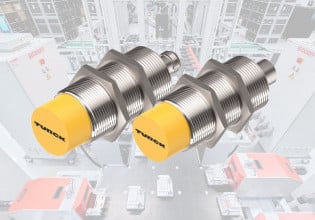E
Eric Kelner
Hello,
I'm one of those lousy engineers who reads this list occasionally and rarely chimes in. But this has been a good topic, so I think I'll take a shot. It's hard to address this issue without being controversial, so I hope you take it in the spirit it was intended.
A typical senior-level engineering position requires a knowledge of economics, management, psychology (to some extent), negotiation, and electrical, mechanical, civil, chemical, etc. engineering. Most of the technicians' comments to this thread have focused on comparing their specific skills, like programming, to an engineer's.
In my experience, technicians (forgive my generalization
for a moment) tend to miss the big picture. They're very
good at analyzing and diagnosing a specific piece of
equipment, but they fail to see how that equipment fits
into the overall system. Similarly, they fail to see how engineers fit into the overall system. Engineers may have responsibility and accountability for the budget, schedule and technical performance of several different projects. A decision, made by some other manager, or a client, could impact one of these projects, and force the engineer to make a decision that appears to be incorrect or inconsistent to the technician. Engineers also have to defend their decisions to managers, clients, and vice presidents. And they will protect technicians from the wrath that company management can bring. These are very real and common issues that engineers have to deal with. If you punch your time sheet, go home and forget about the job, you're probably not dealing with those issues.
Thanks.
Eric Kelner
Senior Research Engineer
Southwest Research Institute
San Antonio, TX
210-522-3309
(My Opinion - Not my Employer's)
I'm one of those lousy engineers who reads this list occasionally and rarely chimes in. But this has been a good topic, so I think I'll take a shot. It's hard to address this issue without being controversial, so I hope you take it in the spirit it was intended.
A typical senior-level engineering position requires a knowledge of economics, management, psychology (to some extent), negotiation, and electrical, mechanical, civil, chemical, etc. engineering. Most of the technicians' comments to this thread have focused on comparing their specific skills, like programming, to an engineer's.
In my experience, technicians (forgive my generalization
for a moment) tend to miss the big picture. They're very
good at analyzing and diagnosing a specific piece of
equipment, but they fail to see how that equipment fits
into the overall system. Similarly, they fail to see how engineers fit into the overall system. Engineers may have responsibility and accountability for the budget, schedule and technical performance of several different projects. A decision, made by some other manager, or a client, could impact one of these projects, and force the engineer to make a decision that appears to be incorrect or inconsistent to the technician. Engineers also have to defend their decisions to managers, clients, and vice presidents. And they will protect technicians from the wrath that company management can bring. These are very real and common issues that engineers have to deal with. If you punch your time sheet, go home and forget about the job, you're probably not dealing with those issues.
Thanks.
Eric Kelner
Senior Research Engineer
Southwest Research Institute
San Antonio, TX
210-522-3309
(My Opinion - Not my Employer's)






